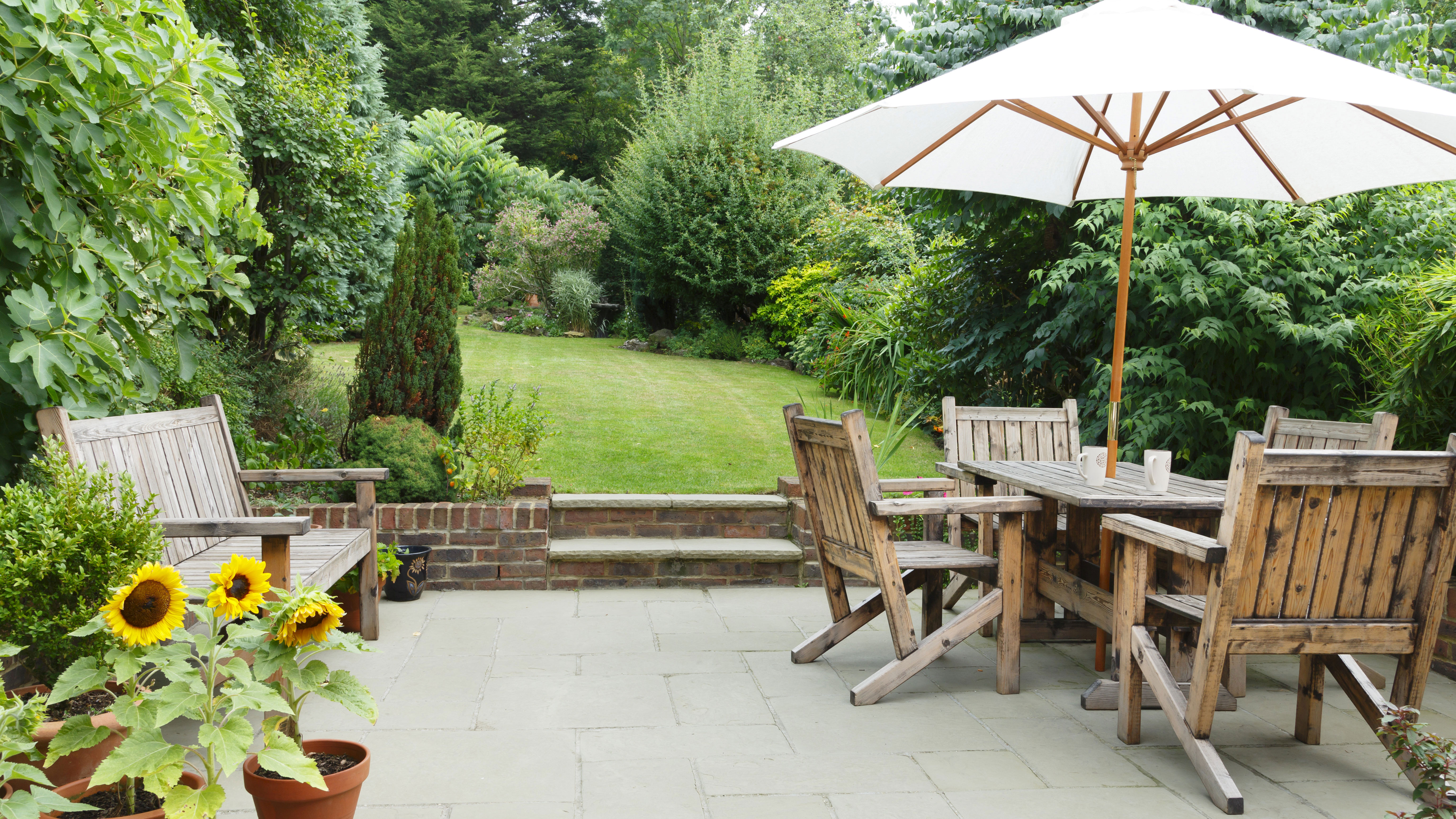
With the sun breaking through and the weather becoming warmer, we’re all starting to prepare our yards for spending more time outside. Whether you’re out and about sowing vegetable seeds, dethatching your lawn, or removing weeds from your patio, there are plenty of jobs to take care of. And if you use your garden to entertain, you’ll no doubt be eager to get out your best grill and scrub it down with one of the best grill brushes.
Apart from attending to your lawn and tidying your flower beds, you’ll also be thinking about cleaning any hard landscaping that’s become grimy and discolored over the past few seasons. Fallen leaves and general garden dirt are one issue, but if your patio and paving are in a shady location that gets damp, they may be susceptible to algae, mold, mildew, lichen, and moss and will need a thorough clean.
Here, Trevor Knight, technical garden and driveway specialist at Marshalls, explains the do's and don’ts of cleaning your patio to prepare it for summer and to keep it looking spick and span for the rest of the year.
Get out the soap
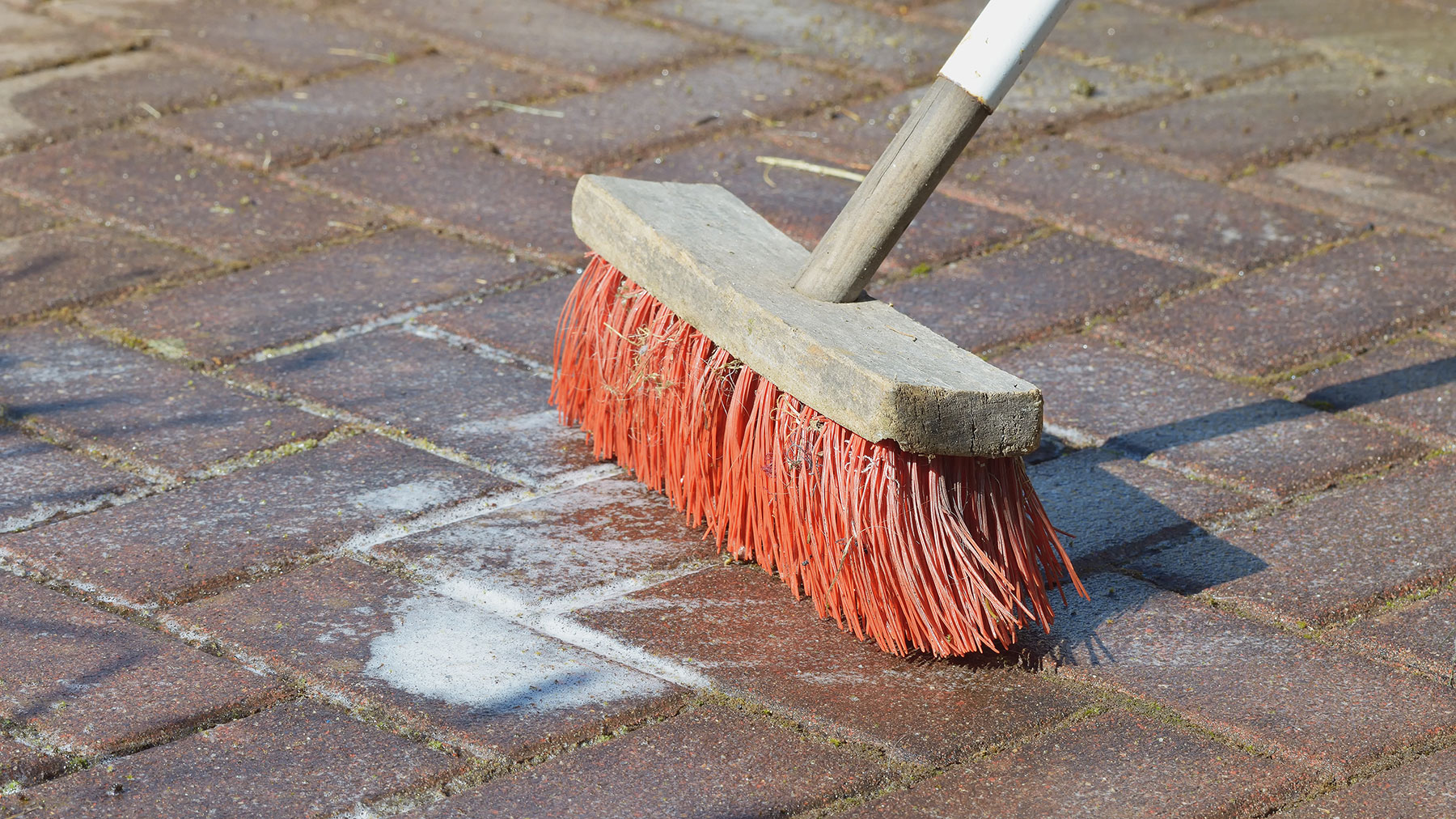
One method of cleaning your patio is using soap, water, and, of course, elbow grease! Knight recommends grabbing a hard-bristled brush and an eco-friendly cleaning agent before getting to work.
“Opting for an eco-friendly cleaning agent is crucial for protecting waterways and wildlife, ensuring no harsh chemicals are being washed away into natural water courses or borders of the garden, causing damage to delicate trees and plants,” he says.
“Mix your chosen cleaning agent with warm water and start from the corners of your patio slabs, working inwards. Rinse and repeat until you’re happy with the result.”
Finally, once you have finished, he recommends rinsing the area with clean water to ensure any loose dirt or residue has been removed. But he warns, “Avoid washing suds and soap into a drainage point that’s a one-part system designed for rainwater only.”
Give your patio a blast with a pressure washer
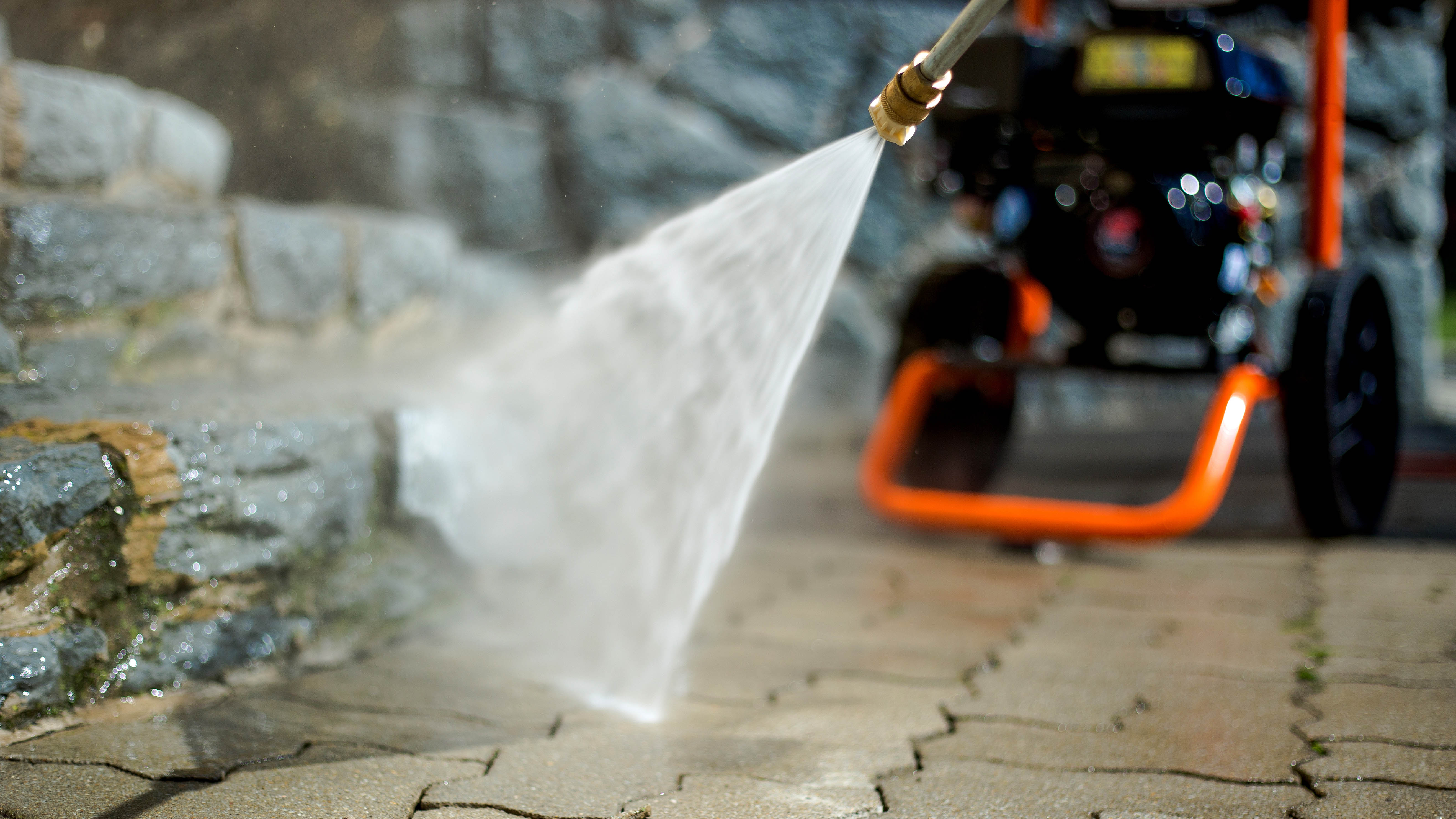
You may prefer a pressure washer than scrubbing your patio with soap and water, especially for stubborn dirt that has built up. Although using a pressure washer is more fun, it does come at a higher cost, as you’ll need to account for the appliance, energy and water usage.
But if you do choose to use a pressure washer, Knight says you must be cautious, as it can damage your pavers if done incorrectly. “The pressure washer will need to be connected to your garden hose and will require your chosen cleaning agent. If you don’t have detergent, then a solution of eco-friendly washing-up liquid and water would suffice,” he advises.
“Working from the corners in, hold the pressure washed at a 30° angle and work your way down the patio,” while he warns, “Don’t hold the pressure washer too close to the slabs as it may cause permanent damage — start on a low-pressure setting to reduce the risks of damage.”
My colleague Hunter Fenollol recently reviewed Dewalt’s battery-powered pressure washer and was so impressed that he declared it his favorite cleaning tool.
Beware white vinegar
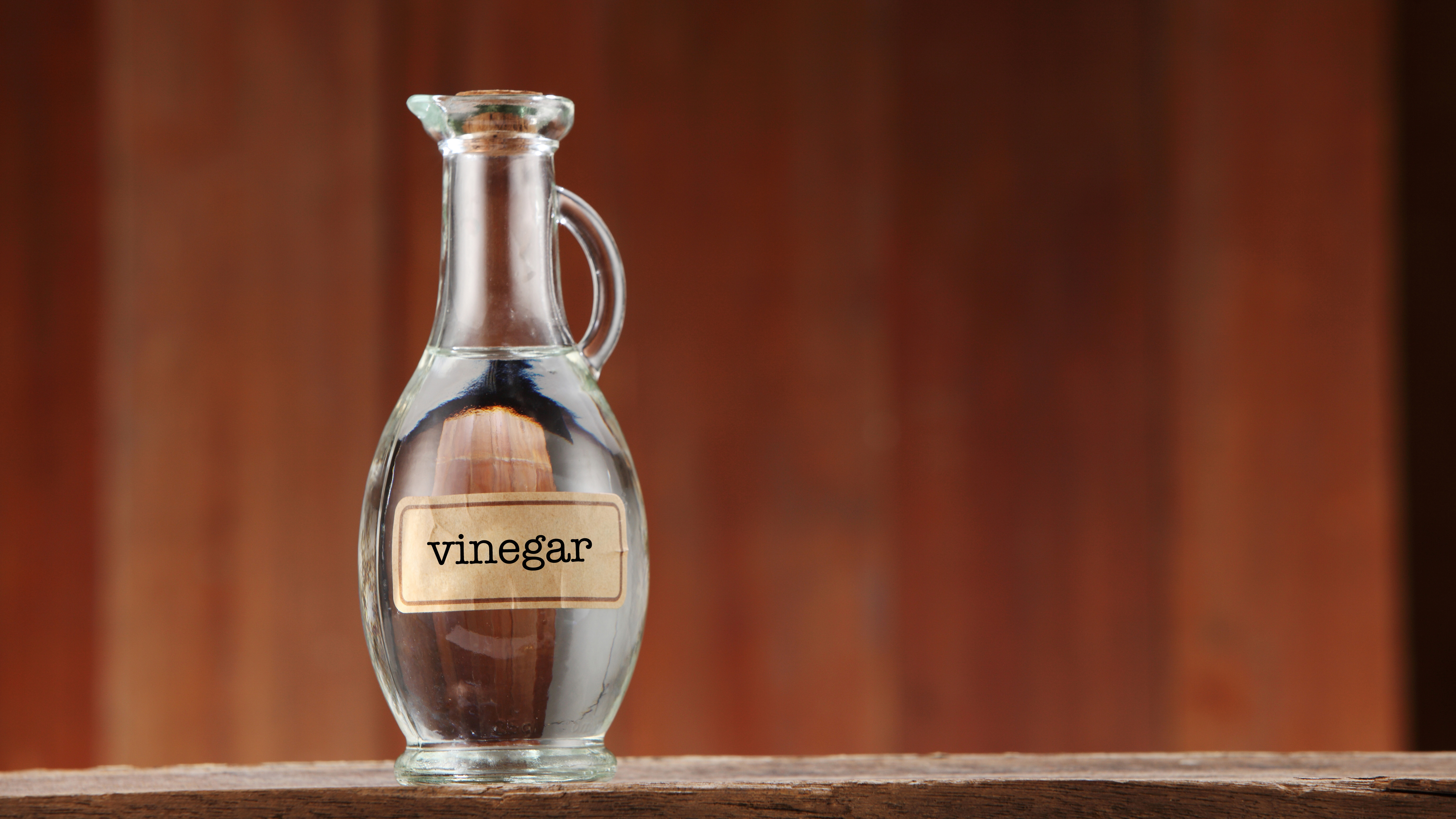
White vinegar is a natural cleaning product that can be used for multiple cleaning tasks inside our homes, such as cleaning windows and removing limescale, and when it’s combined with baking soda it can unblock drains. However, there are certain things that you should never clean with white vinegar, due to its acidic nature.
The same is true when using it as a cleaning product outside. “Despite often being a popular choice for cleaning the patio, vinegar can harm the biodiversity of your garden,” says Knight. “White vinegar solutions can damage and kill plants, and although this may be the ideal outcome for those wanting to rid their patio of weeds, if this solution were to make its way onto your plants and grass, the result would be less than desirable.”
Therefore, to protect your paving, Knight says that acidic solutions should be avoided, particularly on calcareous pavers such as those made from limestone, which can lead to irreparable damage of the material.
Avoid cleaning your patio with bleach
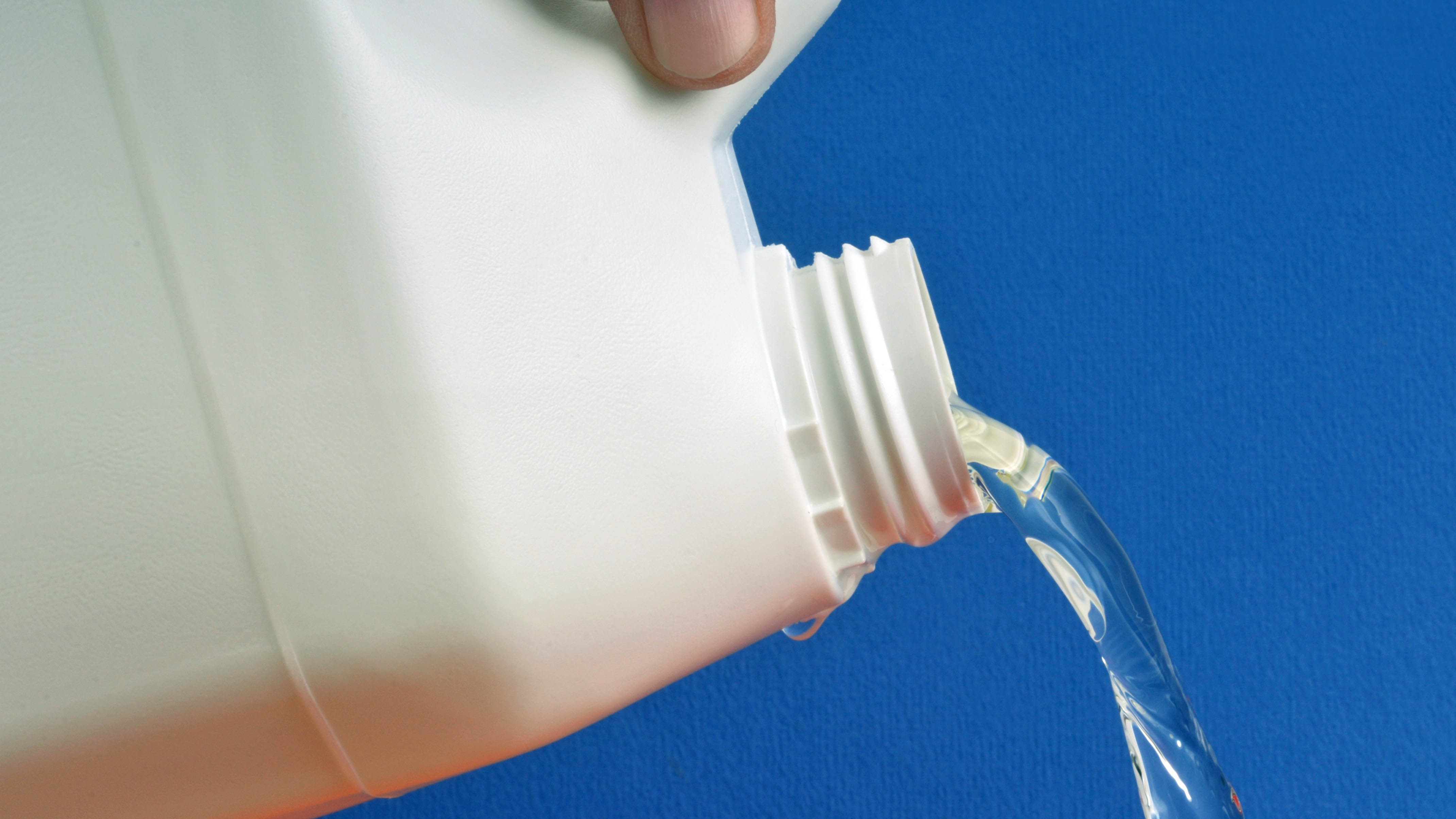
Just like white vinegar, Knight warns against using bleach to clean your patio as it is harmful to plants and your garden’s biodiversity. “Any bleach solution that runs off of the patio onto grass or plants when cleaning can cause significant harm to these, likely causing them to die,” he says.
Apart from damaging the environment in your yard, bleach can also impair your patio. “Over time, bleach can also lead to discolouration and irreparable damage to paving slabs, particularly those that are man-made such as concrete slabs.”
However, if you do choose to use bleach, and favor using a pressure washer, be cautious. Although it’s a powerful cleaning chemical, it is corrosive and could damage the metal parts of your pressure washer.







